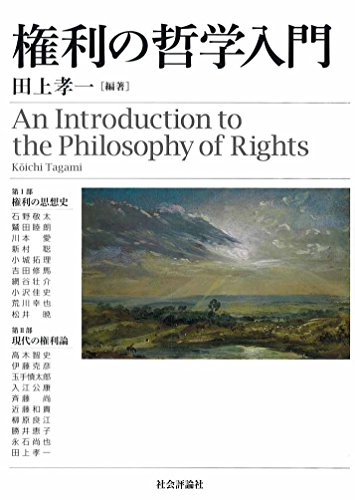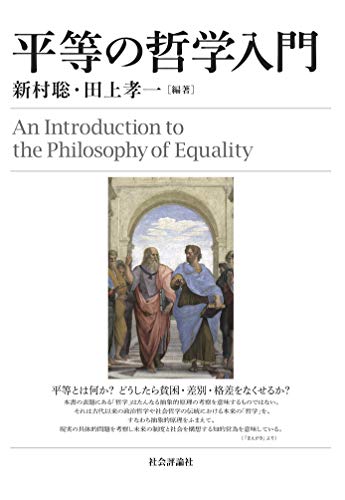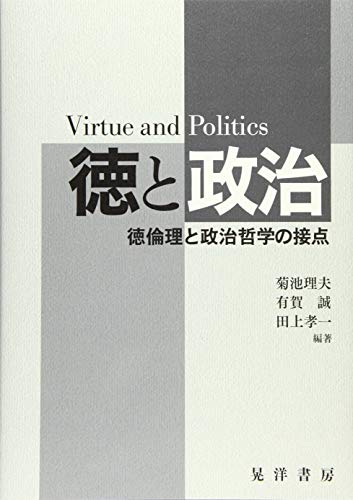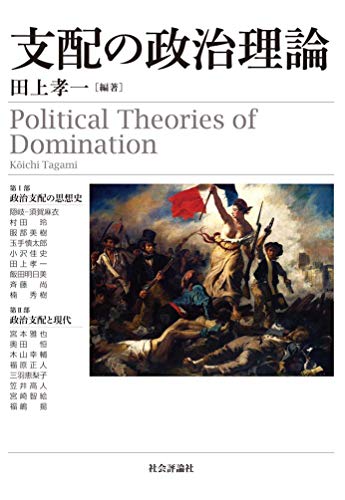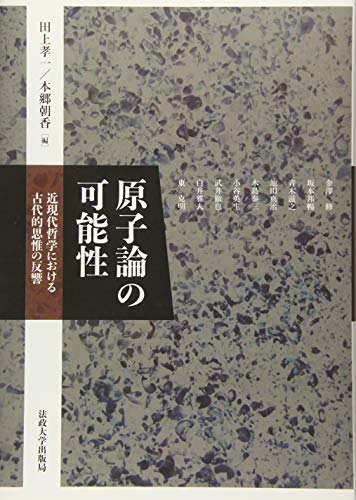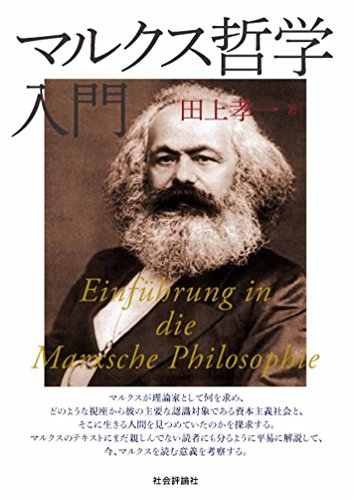29 0 0 0 OA マルクスの物象化論と廣松の物象化論(<特集>廣松物象化論と経済学)
- 著者
- 田上 孝一
- 出版者
- 経済理論学会
- 雑誌
- 季刊経済理論 (ISSN:18825184)
- 巻号頁・発行日
- vol.48, no.2, pp.40-49, 2011-07-20 (Released:2017-04-25)
The aim of this paper is to compare Wataru Hiromatsu's theory of reification with Karl Marx's theory of reification. Hiromatsu insists that his theory is the genuine interpretation of Marx. So I examine Hiromatsu's remark. In this paper, I mainly concern the rightness of Hiromatsu's interpretation of Marx. I do not concern the validity of Hiromatsu's theory on the contemporary society. In section one, I doubt the Japanese translation of reification. In original German word, reification is Versachlichung. In ordinary Japanese translation, Versachlichung is "Butsushoka". Butsusho means phenomenal thing. Ka means transformation. So Butsushoka means something is transformed to phenomenal thing. But this meaning cannot tell the conceptual content of Versachlichung. The stem of Versachlichung is Sache. Sache is the counter word of Person. So Versachlicung means that Person is transformed to Sache, in English, personality is transformed to thing. It means not epistemological aspect but ontological situation. So Butsushoka is not correct. "Butsukenka" is correct. Because "butsuken" correctly means Sache. That is why I insist that Versachlichung should be translated into not Butsushoka but Butsukenka. In section two, I explain the core concept of Marx's theory of reification. The basic usage of reification by Marx is "reification of personality and personalization of thing". The conceptual dimension of reification in Marx's case is not epistemological but ontological. By the theory of reification Marx tries to clarify the real upside-down structure of capitalism. For Marx capitalism is the society in which labor's personality becomes a thing like goods. Capitalism is not slavery. But in fact, it is the wage-slave society. Marx charges this fact by the theory of reification. In short, for Marx reification is the essence of capitalism. Marx also charges the fetishism in capitalism. The concept of fetishism in Marx's case is expression of reification. It is also phenomenon of reification. The relationships of reification and fetishism are "cause and effect" and "essence and phenomenon". And reification is also alienation. It is one dimension of alienation. Marx insists that capitalist is arisen by alienated labor. The alienation of labor of workers from his/her own labor process is cause of capitalism. So alienation is cause of reification. That is why alienation and reification and fetishism are mutual "cause and effect" and "essence and phenomenon" relationships. In section three, I examine Hiromatsu's theory of reification. Hiromatsu tells about reification but he does not analyze Versachlichung. Only he analyses is not Versachlichung but Fetischismus. But fetishism is only a expression of reification. Owing to analyze fetishism we cannot clarify reification. Why has he this illusion? Because he thinks reification and fetishism as being the same. Through this reason he one-sidedly looks reification as epistemological concept. For Hiromatsu, reification as the real upside-down structure is "the vulgar reification". But Marx himself has this vulgar idea. Hiromatsu's reification is a very odd theory. Conclusion: Hiromatsu's theory of reification is a distortion of Marx's theory of reification. Hiromatsu himself thinks that his theory is the genuine interpretation of Marx. But in fact, Hiromatsu's theory has nothing to do with Marx. So Hiromatsu's theory of reification is not Marxist one but his own philosophical fantasy.
19 0 0 0 IR いわゆる「個人的所有の再建」について
- 著者
- 田上 孝一
- 出版者
- 東京電機大学
- 雑誌
- 東京電機大学総合文化研究 = Bulletin of Tokyo Denki University, arts and sciences (ISSN:1348799X)
- 巻号頁・発行日
- no.16, pp.127-130, 2018
16 0 0 0 非常勤講師と研究 (特集 非正規・不安定雇用と学問継承の危機)
- 著者
- 田上 孝一
- 出版者
- 日本科学者会議 ; 1966-
- 雑誌
- 日本の科学者 (ISSN:00290335)
- 巻号頁・発行日
- vol.53, no.11, pp.612-617, 2018-11
8 0 0 0 初期マルクスの疎外論 : 疎外論超克説批判
5 0 0 0 OA 『ゴータ綱領批判』におけるGenossenschaft概念について
- 著者
- 田上 孝一
- 雑誌
- 東京電機大学総合文化研究 = Bulletin of Tokyo Denki University, Arts and Sciences (ISSN:1348799X)
- 巻号頁・発行日
- no.14, pp.233-236, 2016-12-20
- 著者
- 田上 孝一
- 出版者
- 経済理論学会
- 雑誌
- 季刊経済理論 (ISSN:18825184)
- 巻号頁・発行日
- vol.48, no.2, pp.40-49, 2011
The aim of this paper is to compare Wataru Hiromatsu's theory of reification with Karl Marx's theory of reification. Hiromatsu insists that his theory is the genuine interpretation of Marx. So I examine Hiromatsu's remark. In this paper, I mainly concern the rightness of Hiromatsu's interpretation of Marx. I do not concern the validity of Hiromatsu's theory on the contemporary society. In section one, I doubt the Japanese translation of reification. In original German word, reification is Versachlichung. In ordinary Japanese translation, Versachlichung is "Butsushoka". Butsusho means phenomenal thing. Ka means transformation. So Butsushoka means something is transformed to phenomenal thing. But this meaning cannot tell the conceptual content of Versachlichung. The stem of Versachlichung is Sache. Sache is the counter word of Person. So Versachlicung means that Person is transformed to Sache, in English, personality is transformed to thing. It means not epistemological aspect but ontological situation. So Butsushoka is not correct. "Butsukenka" is correct. Because "butsuken" correctly means Sache. That is why I insist that Versachlichung should be translated into not Butsushoka but Butsukenka. In section two, I explain the core concept of Marx's theory of reification. The basic usage of reification by Marx is "reification of personality and personalization of thing". The conceptual dimension of reification in Marx's case is not epistemological but ontological. By the theory of reification Marx tries to clarify the real upside-down structure of capitalism. For Marx capitalism is the society in which labor's personality becomes a thing like goods. Capitalism is not slavery. But in fact, it is the wage-slave society. Marx charges this fact by the theory of reification. In short, for Marx reification is the essence of capitalism. Marx also charges the fetishism in capitalism. The concept of fetishism in Marx's case is expression of reification. It is also phenomenon of reification. The relationships of reification and fetishism are "cause and effect" and "essence and phenomenon". And reification is also alienation. It is one dimension of alienation. Marx insists that capitalist is arisen by alienated labor. The alienation of labor of workers from his/her own labor process is cause of capitalism. So alienation is cause of reification. That is why alienation and reification and fetishism are mutual "cause and effect" and "essence and phenomenon" relationships. In section three, I examine Hiromatsu's theory of reification. Hiromatsu tells about reification but he does not analyze Versachlichung. Only he analyses is not Versachlichung but Fetischismus. But fetishism is only a expression of reification. Owing to analyze fetishism we cannot clarify reification. Why has he this illusion? Because he thinks reification and fetishism as being the same. Through this reason he one-sidedly looks reification as epistemological concept. For Hiromatsu, reification as the real upside-down structure is "the vulgar reification". But Marx himself has this vulgar idea. Hiromatsu's reification is a very odd theory. Conclusion: Hiromatsu's theory of reification is a distortion of Marx's theory of reification. Hiromatsu himself thinks that his theory is the genuine interpretation of Marx. But in fact, Hiromatsu's theory has nothing to do with Marx. So Hiromatsu's theory of reification is not Marxist one but his own philosophical fantasy.
4 0 0 0 IR 初期マルクス研究の意義
- 著者
- 田上 孝一
- 出版者
- 東京電機大学
- 雑誌
- 東京電機大学総合文化研究 = Bulletin of Tokyo Denki University, arts and sciences (ISSN:1348799X)
- 巻号頁・発行日
- no.17, pp.119-122, 2019
4 0 0 0 マルクスのプロレタリア独裁概念について
- 著者
- 田上 孝一
- 出版者
- 東京電機大学
- 雑誌
- 東京電機大学総合文化研究 (ISSN:1348799X)
- 巻号頁・発行日
- no.13, pp.305-309, 2015-12
4 0 0 0 毛沢東の矛盾論について
- 著者
- 田上 孝一
- 出版者
- 東京電機大学
- 雑誌
- 東京電機大学総合文化研究 (ISSN:1348799X)
- 巻号頁・発行日
- no.12, pp.251-255, 2014-12
3 0 0 0 自然の弁証法と弁証法の真正性
- 著者
- Zivotic Miladin 田上 孝一
- 出版者
- 季報「唯物論研究」刊行会
- 雑誌
- 季報唯物論研究 (ISSN:02852993)
- 巻号頁・発行日
- vol.23, pp.132-144, 1999-08
2 0 0 0 コスモポリタニズムのアクチュアリティ
2 0 0 0 99%のためのマルクス入門
2 0 0 0 OA いわゆる「個人的所有の再建」について
- 著者
- 田上 孝一
- 雑誌
- 東京電機大学総合文化研究 = Bulletin of Tokyo Denki University, Arts and Sciences (ISSN:1348799X)
- 巻号頁・発行日
- no.16, pp.127-130, 2018-11-16
- 著者
- 新村聡 田上孝一編著
- 出版者
- 社会評論社
- 巻号頁・発行日
- 2021
1 0 0 0 「生活過程論の射程」中野徹三
- 著者
- 田上 孝一
- 出版者
- 立正大学哲学・心理学会
- 雑誌
- 立正大学哲学・心理学会紀要 (ISSN:02881268)
- 巻号頁・発行日
- no.16, pp.p61-64, 1990-03
1 0 0 0 徳と政治 : 徳倫理と政治哲学の接点
- 著者
- 菊池理夫 有賀誠 田上孝一編著
- 出版者
- 晃洋書房
- 巻号頁・発行日
- 2019
1 0 0 0 原子論の可能性 : 近現代哲学における古代的思惟の反響
- 著者
- 田上孝一 本郷朝香編
- 出版者
- 法政大学出版局
- 巻号頁・発行日
- 2018

